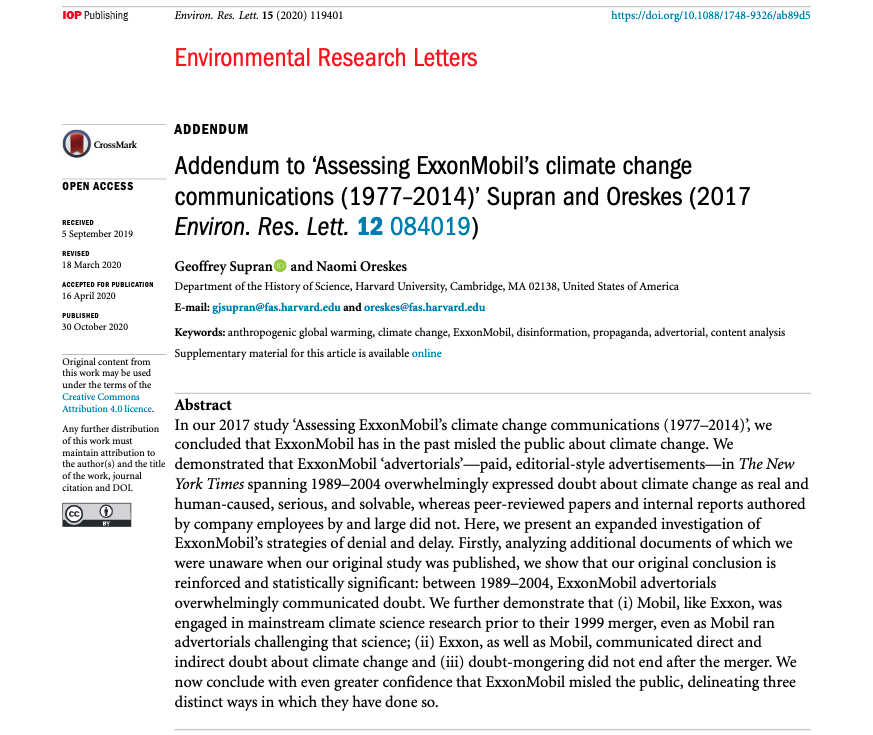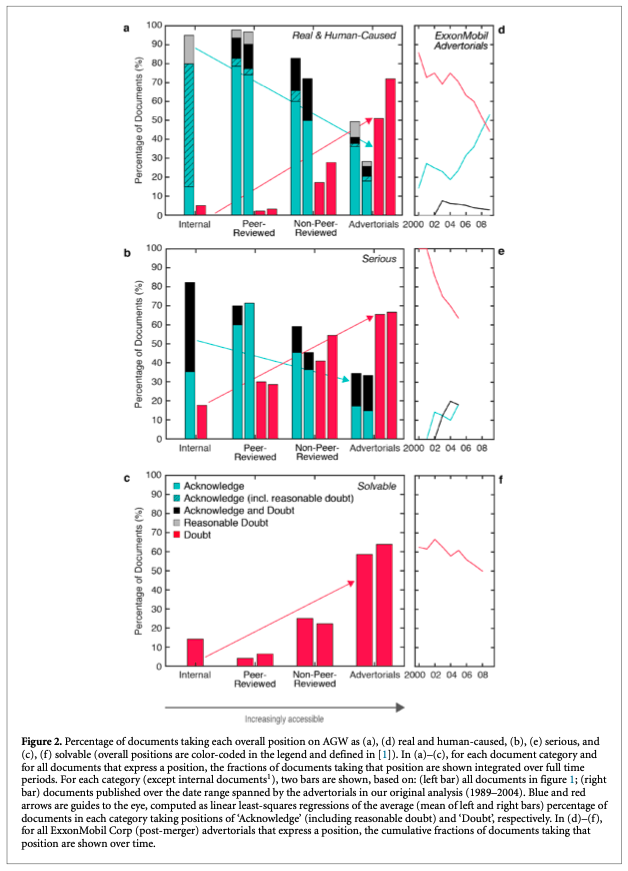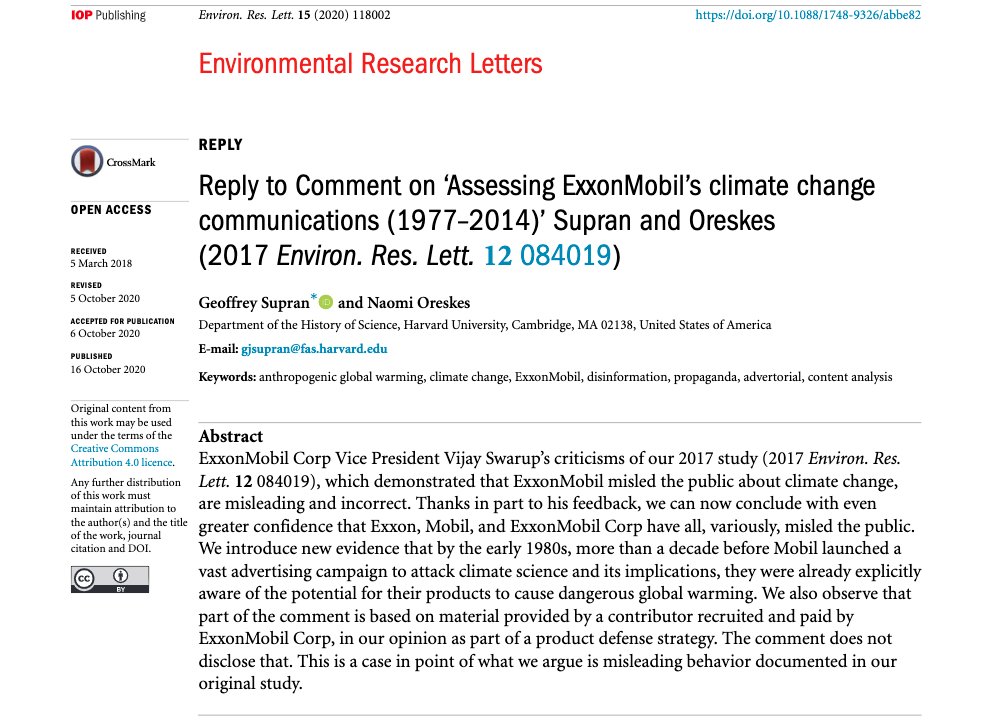
Of Wednesday's 3 big blows to Big Oil, Shell losing in court strikes me as most immediately impactful because it ORDERS a fossil fuel firm to align with Paris Agreement, effective at once, & establishes legal precedents up the wazoo. Do others agree? 1/n
https://twitter.com/GeoffreySupran/status/1397616764469620744?s=20
2/n: The Exxon and Chevron shareholder wins are, of course, also seismic in terms of political momentum-building towards further (shareholder) activism, but that's partly because shareholder engagement has literally yielded nothing for the past 25 years.
https://twitter.com/GeoffreySupran/status/1397937386001158144?s=20
3/n: @GernotWagner seems to concur, noting that "Only one of these events [Shell's court loss] is bound up with measurable, concrete steps towards decarbonization." Regarding the shareholder wins at Chevron and Exxon, "what comes next is more open ended."bloomberg.com/news/articles/…
4/n: @uwsgeezer & @ckrausss likewise caution that "The manifesto put together by Engine No. 1, the hedge fund with a tiny stake in Exxon that led the dissident effort, is not particularly extreme. Nor does it contain a lot of details." nytimes.com/2021/05/27/bus…
5/n: In Engine No. 1's own words: “Nothing is going to happen quickly.”nytimes.com/2021/05/27/bus…
6/n: @mbarnardca goes further, pointing out that while "ExxonMobil’s new board members are good news", they "aren’t climate activists".cleantechnica.com/2021/05/27/exx…
7/n: Rather, they are "seasoned, senior executives from the oil and gas industry" who nonetheless "are committed to lowering carbon emissions in the oil and gas sector more rapidly than the Exxon CEO would prefer."cleantechnica.com/2021/05/27/exx…
8/n: So I'm inclined to:
(a) agree w/ @mbarnardca that short-term "outcomes from ExxonMobil will be slightly better because of this" shareholder rebellion;
(b) celebrate the political gains; and
(c) look to exponentiate that momentum going forward.
(a) agree w/ @mbarnardca that short-term "outcomes from ExxonMobil will be slightly better because of this" shareholder rebellion;
(b) celebrate the political gains; and
(c) look to exponentiate that momentum going forward.
9/n: For one, @mbarnardca argues that "A much better action for BlackRock" than backing Engine No. 1's candidates "would have been to very publicly divest their 6.7% ownership position of ExxonMobil entirely." Shareholders could also have voted out the CEO.
10/n: Another (potentially complementary) approach, noted by @GernotWagner, is for shareholders to demand full disclosure of companies' lobbying (and public affairs) activities & spending. bloomberg.com/news/articles/…
11/n: Most of all IMHO, as @emdashsanders (and previously @nick_sobczyk) have noted, "the next potentially explosive showdown seems to be brewing on Capitol Hill, where Big Oil executives could be forced to testify in front of Congress for the first time." exxonknews.substack.com/p/will-congres…
Just saw @mollytaft @EARTH3R (ft. @bmcushing) basically already said all of this yesterday 😉:
gizmodo.com/what-happens-t…
gizmodo.com/what-happens-t…
• • •
Missing some Tweet in this thread? You can try to
force a refresh











